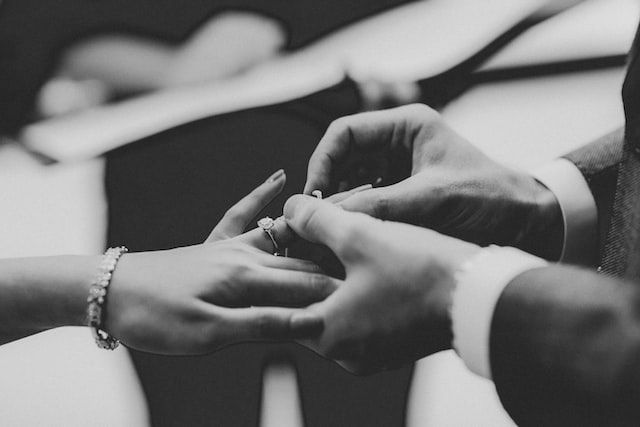
I’m at the age where any conversation I have with my older relatives has to somehow find its way to my marital status. They don’t like the fact that according to the Kenyan Government, I’m single. One day, my grandmother took me by my hand to her chicken coop, pointed at one of the voluptuous birds running in there then remarked, “That’s the chicken I’ll slaughter for you the day you bring me your wife.” I won’t lie, her trick almost worked, she definitely knows what a bowl of steaming, chicken soup does to me.
I know a lot more people relate to my predicament, regardless of their age. So, why is this institution, which for the longest time has been considered sacred and a cornerstone to our society, losing its allure to the younger generations? And why now? Couldn’t younger people from preceding time periods see it for what it is? Or are we the blind ones, passing off a fundamental rite of passage as inflated, exaggerated or even unnecessary?
Unhealed traumas
Life is complicated and unfair most of the time. Good things don’t necessarily happen to those who most deserve it and worst of all, terrible things happen to those who least deserve it as well. And the baffling part of this is that there’s little to nothing we can do about it.
The fact that none of us chose the families we were born into means some of us were assimilated into toxic environments that had been normalised by our parents or guardians. And it didn’t help that our developing brains were as malleable as they could be, absorbing and forming neural pathways and connections that were founded on the already destructive patterns and behaviours we found ourselves in.
Like how do you convince a man that grew up watching his father do as he pleases that a relationship is more of a partnership than a dominance competition? To him, his whims and wants dictate how he interacts and treats his significant other. In other words, he’ll come home when he feels like it, he’ll leave when he wants, he’ll prioritise his needs and neglect his partner’s because isn’t that what men do?
It’s easy to parade the ideal conditions of what we’d consider a healthy relationship, but if we haven’t scrutinised and come to terms with our past, we might fall into patterns that don’t serve us convinced that there is no alternative.
The paradox of choice
Imagine that you need to make yourself dinner, so the question of ‘nitakula nini?’ (what will I eat?) is nearly splitting your brain into two other halves. This question is easy when you know what you want but it can be the hardest question when all you want is not to sleep hungry. You could have rice, but you already had it during lunchtime. You could make ugali, but you find making it too tedious, especially if you’re making it only for yourself. So what are you left with? Chapo? Githeri? Fries? And God forbid you choose something you’ll regret for the rest of the night. So, 30 minutes later you’re still paralysed by the overwhelming urge to make not only a choice, but the best choice possible because who the hell makes a bad choice with so many options available?
Now imagine you have to choose someone to spend the rest of your life with. I know, the pressure can’t be measured. We no longer live in the era where families decided if they were compatible in-laws before considering what the bride and groom wanted for themselves. These days, you’re released into the wild and told to come home with whomever you think is best for you.
It sounds right and dignified, but the one thing we all know is that just because you chose your spouse doesn’t mean you’ll live happily ever after. It just means you’ll have no one else to blame when things come tumbling down, and this very realisation has paralysed most with fear, especially if they have been subjected to unparalleled character development and chest pains by an ex that was supposed to be the love of their lives.
Self-commodification
The emergence of online dating was and still is a major game changer in the dating scene. The fact that you can meet anyone from anywhere and form meaningful connections with them is still mind-boggling. But online dating feels like the angel we know nothing about. It’s all roses and bliss until years down the line when the repercussions hit us from nowhere.
There’s something about reducing another human being to your likes and preferences that just feels out of place. That if they’re not a certain way and don’t possess certain qualities, then everything else they have to offer is seen as redundant and inessential. And so, all we’re left with is a bunch of people projecting their wants and desires onto complete strangers, accompanied by emotional meltdowns once they realise that their expectations are nothing close to what their ‘ideal partner’ has in store for them.
Online dating has also made cheating a walk in the park. You see, before the internet came around, if you had decided to cheat, the probability that you were cheating with someone in the same social circle as you was insanely high, therefore making it a high-risk, low-reward venture. Nowadays, you could meet a total stranger anywhere you want, whenever you want and not a soul in your social circle will ever know. Our moral fabric as a society is slowly decaying away, leaving us at the mercy of our insatiable debauchery and impulses.
It feels like I wrote this article to excuse our not-so-rational fear of commitment and loyalty to another person. But that’s not it. I personally feel like a lot of people don’t really get the point of marriage, myself included. Listening to me giving marriage advice is like listening to a toddler teaching you how to run. But I grew up watching my parent’s marriage, and in as much as they’re not a celebrity couple with a YouTube channel, I’ve learnt a thing or two from them.
I’ve learnt that being married isn’t about any one of you, but both of you. That it involves voluntary enslavement to some extent, choosing every day the things that nourish the two of you over the things that stifle your growth. I know vows aren’t said just to add a dramatic flair to the wedding. I know being married isn’t about having my meals made by a wife, or being the husband that the in-laws idolise. I may be too young to know what marriage is, but I’m old enough to know what it isn’t.





